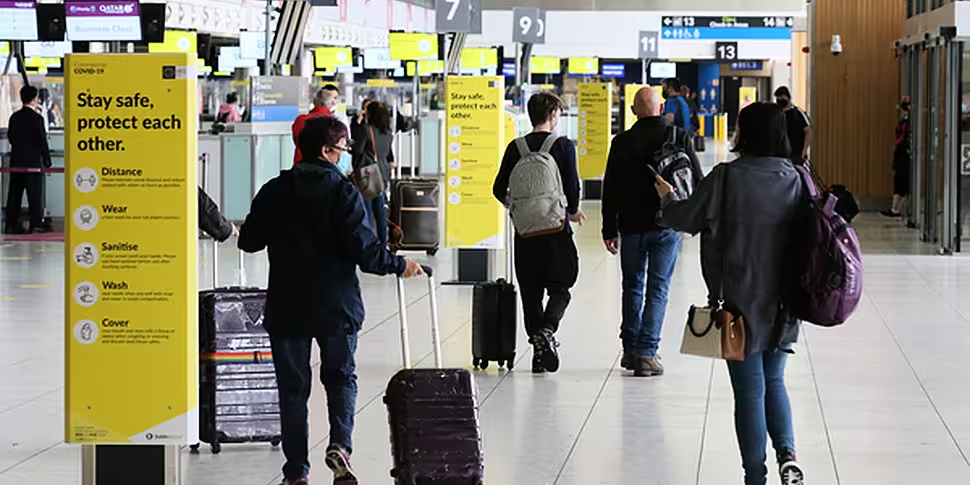The 14-day quarantine period for people travelling to Ireland should be replaced by tests before and after travel, according to an immunology expert.
On Newstalk Breakfast this morning, Professor Kingston Mills from the School of Biochemistry and Immunology at Trinity College, said it is essential to control the number of cases coming into Ireland from abroad.
He warned that, without increased protections at airports, clusters will continue to occur around the country – regardless of how successful we are in getting the numbers down.
“What I advocate should happen is that everybody coming into the country should be tested prior to departure and on arrival and if you do that you will get more that 90% of the potential cases,” he said.
“Then there is no need for 14-day isolation and that would help businesses hugely. A lot of businesses are dependent on travel and if they have to isolate when they come back, it really affects them badly.
“If you had a test you had to do before you departed and when you arrived you could be back in two days.”
Testing
He noted that there is a new “more rapid” COVID-19 test available that could offer quicker testing times.
“We have been encouraging the Government here to look at this and implement it,” he said.
“This doesn’t involve having to take a swab test. This is based on saliva, which is much easier to take, doesn’t require a testing centre and has a quicker turnaround.
“This could be implemented. They just need the will to do it and I think it is a better weapon than asking people to self-isolate, which I don’t think is working.”
Schools
He said we have to be prepared to see cases in schools after children return in the coming days.
“The worrying information that emerged last week was that a significant number of schools in Germany saw cases of COVID-19 after they opened the schools,” he said.
“I think we have to expect that there are going to be cases in Ireland, particularly in the secondary schools.
“The primary schools are less of a concern because it really is a very mild disease and a very transient infection in the very young. That is not to say they can’t transmit it but it will be much less of an issue than it will be for older children or adults.”
Winter
He noted that the return will mean a lot of testing, especially as winter draws in.
“There are going to be an awful lot of people that are going to be sent for tests, especially as we head into the autumn with colds and regular flu much more prevalent that time of year,” he said.
“People will think they have COVID-19 because they have some of the symptoms but people can’t react every time one of these incidents occur.
“You can’t close schools if someone just goes for a test because half the schools in the country would be closed all the time if you do that.
“If you do have a case, that is a different scenario. Then it very much depends on how much contact that cases had with other individuals or the teachers.”
Lockdown
The Trinity professor also said he is not in favour of lockdowns, which he described as “very crude weapons.”
“I think we had to do what we did in April because the health system would have been overwhelmed if we hadn’t done it,” he said.
“That is not the cases now so I don’t think there is any need for another lockdown even if the cases stay at this level for a while, as long as we don’t have more people going to hospital.
“So, from that perspective, we don’t need to go back to something like a lockdown but we do need measures in place that are going to deal with the infections as they occur.”









